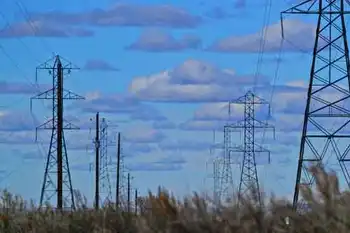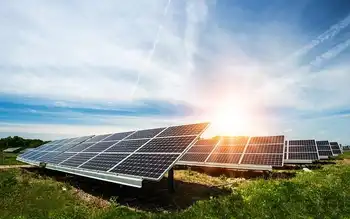A stake in IndiaÂ’s new economy
By Financial Post
NFPA 70e Training
Our customized live online or in‑person group training can be delivered to your staff at your location.

- Live Online
- 6 hours Instructor-led
- Group Training Available
"The equipment here is similar to what we have in Quebec, yet Indian labour costs are lower. That means we can save customers a lot of money if we do business here. But the payoff will only come if the quality measures up," he says.
Mr. Gupta's father, Chris, bought Powercast Manufacturing in 1994. The company produces custom-made parts for the electricity, construction and housing-fixtures industries. But in recent years, strong competition from China-based producers has forced Powercast to lower costs.
"These orders are just tests," says Mr. Gupta, regarding the work done at the plant located a short drive from India's capital.
"But, if we can do marketing, product design, storage and distribution in Canada, as well as manufacture selected products here, it would make our supply chain far more efficient."
Mr. Gupta, like many Indo-Canadians, closely follows his father's home country's staggering economic progress. Economic reforms are opening up India to increased trade and investment, making it possible for more foreigners like Mr. Gupta to do business here. His family maintains close ties with relatives back home and, three years ago, they bought a three-bedroom condominium in the burgeoning New Delhi suburb of Gurgaon, which they use as a base.
Mr. Gupta's case is not unique, says Kenny Zhang, a senior research analyst at the Asia Pacific Foundation of Canada. "Canada has a very strong and vibrant Indo-Canadian community. There is a very positive link between diaspora communities and increased business relationships between the countries involved."
Newly arrived Canadians and their families don't forget about their roots. Like many of the 900,000-or-so Indo-Canadians, Mr. Gupta returns to India every year. He closely follows differences in the two economies, and for an entrepreneur, differences often signal opportunities.
One key difference between Canada and India is their growth rates. India's GDP grew by 8.9% during the most recent quarter, more than three times as fast as Canada's. Furthermore, at the World Economic Forum's India summit, which was held in New Delhi in early December, Indian government officials expressed confidence the country can maintain that pace during the coming years.
If India continues to grow at its current pace, income levels there will almost triple and, by 2025, the country will become the world's fifth largest consumer market. The strong Indian growth has rubbed off on Canadian companies whose exports there have been rising in the double digits the past several years to $1.7-billion in 2007.
However, industry experts say the Indo-Canadian community has not yet been as active in strengthening business relationships with its mother country as the U.S.-Indian or the Chinese-Canadian communities. Part of the reason is due to a simple time lag. China began opening up its economy more than decade before India did, a period many economists use as a yardstick to measures the two countries' respective economic progress.
According to Maneesh Nanda, a consultant who specializes in India-Canada issues and whose work is increasingly bringing him back in touch with his motherland, things are starting to change. "The composition of Indian immigrants into the United States has been far more centred on their educational and business qualifications than in Canada. So naturally the American-Indian community has had a bit of a head start," Mr. Nanda said. "But India's economy is now becoming so strong that it is lifting all boats."
Ravi Singh, president of Apparel Sourcing, an Indian national who has lived in Canada for 20 years, agrees. Mr. Singh recently signed a contract to help a European retailer scout opportunities to set up shop in India and will be meeting with several Canadian firms in the coming months to share his experiences. "Many retailers think that India is too poor to support an expansion there, but they are underestimating the size and strength of the country's growing middle class," he said.
Demand for retail space in India is so strong, many companies simply cannot get space, despite that there are malls popping up everywhere. According to Mr. Singh, rents in many prime Indian malls are now $40 a square foot per month, which is what some Canadian malls are charging in a year.
Mr. Gupta is also dazzled by the opportunities. "You know it's funny. We are sitting here in what will probably be one day the world's largest economy and we are thinking of importing aluminum parts into Canada. But domestic demand here will make opportunities back home pale in comparison," he said.
Later in the day, from the balcony of his family's Gurgeon condominium, he surveys the highrises and malls rising as far as the eye can see. "I have a feeling that the really smart Indo-Canadian entrepreneurs are the ones who will come back from Canada to invest here."











